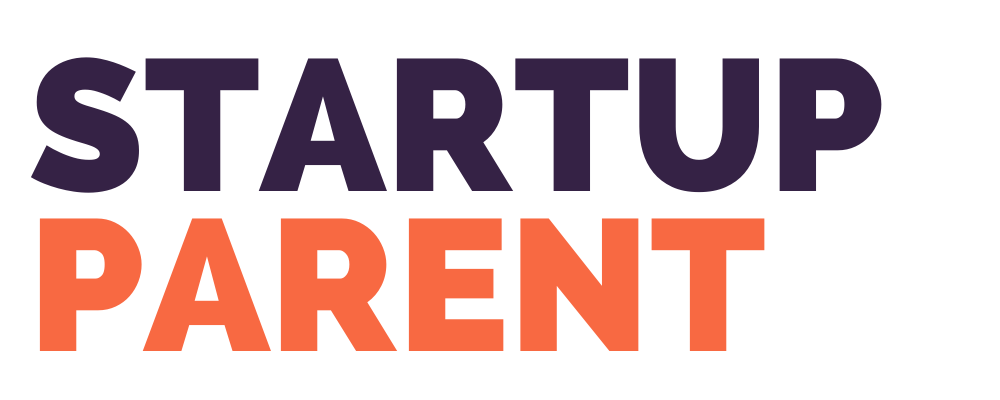Building Your Village as a Mother — Episode #214 with Beth Berry
Beth Berry became a mother for the first time at 17, but it wasn’t until she got married that she fully understood the injustices around motherhood.
As a teen mom, Beth had consistent help with her daughter because she lived with her family. Her family was a built-in village. But when she later got married and started raising kids in a more conventional single family household, Beth struggled to show up as the kind of mother she aspired to be.
Today, she’s the mom of four kids, ages 16, 18, 22 and 28 (at the time of this interview). Through the decades of motherhood, Beth learned the difference between raising kids with the support of a village — as compared to doing it in a more conventional single family household. That’s when she realized the system was rigged, and it wasn’t in her favor.
We were never meant to raise children without the support of a village.
Being in a traditional marriage with kids was far, far more challenging. She was trying to meet all of her children’s needs on her own, and realized it wasn’t possible. That’s why Beth is so vocal about the importance of finding other mom friends and being in community with other people.
We need more mom friends.
In this conversation, Sarah and Beth talk about the importance of community and connection for mothers. When she was younger, Beth struggled to keep up with the idealized version of motherhood she had envisioned.
Mothers are trying to create a sense of belonging for their children, partners, and themselves. However, the pressures of doing it all on their own can be overwhelming, leading to feelings of inadequacy and guilt.
Beth believes the lack of real, supportive communities is at the core of the struggles that mothers face.
That’s why Beth is so passionate about the concept of revillaging, and how it aims to rebuild the connective tissue of communities — particularly for mothers. She explains that having a small close-knit community of mom friends and peers you can lean on is essential. We need robust community members that can help with daily tasks, while also supporting a greater sense of security and belonging for both the children and adults.
Feeling isolated and alone makes motherhood so much harder.
Sarah and Beth talk about how systems bigger than us perpetuate loneliness, and why it’s so hard to make other mom friends. Plus, if you’ve ever felt like you never do “enough” as a mother, that’s something that many women experience. But it isn’t a personal failing: there is no way to be everything to your child. That’s the work of a village, not an individual.
The truth is that motherhood is hard because we’re missing the support of a community, not because you’re doing anything wrong.
Listen to this episode to hear Sarah and Beth talk about how to build deeper connections with other people, the methods they use to build their villages of mom friends, what you need for emotional depth, and what to do when you’re stretched past capacity.
Beth is committed to having honest conversations about the importance of real connection for mothers through her writing, online group facilitation, and teaching. Her goal is to uplift and empower mothers, helping them practise self-compassion and build supportive communities.
If you’ve ever felt overwhelmed by motherhood, this episode might be exactly what you need. We got you.
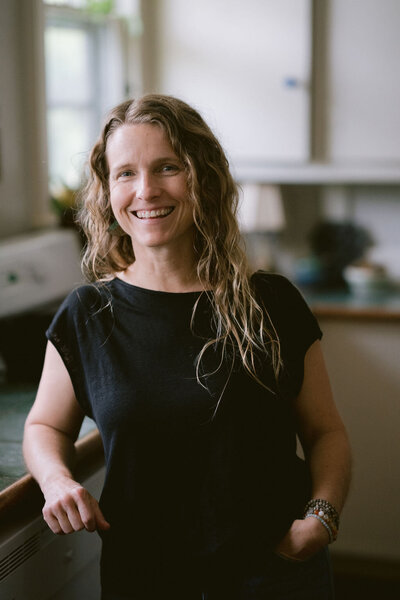
FEATURED GUEST
Beth Berry, Author, Facilitator, Changemaker
Beth Berry is an author, life coach, circle and retreat facilitator, and mother of four daughters. She has a tender, fiery conviction to reclaim motherhood from disempowering social narratives, and has spent thousands of hours mentoring and supporting mothers through their own processes of self-discovery and self-reclamation. Through Revolution at Home, Beth supports and encourages mothers toward the realization of their fullest potential.
EPISODE SUMMARY
Sarah and Beth discuss:
- The ideals Beth had going into motherhood, and the compromises she made. Beth had idealistic dreams of saving the world through sustainable agriculture and motherhood. She quickly realized her passions were driving her, but her circumstances didn’t allow her to fulfill those ideals. She constantly felt like she wasn’t enough and couldn’t keep up with all of her aspirations, not realizing that she was essentially trying to be a whole village by herself. ****
- The myth of rugged individualism, and how community benefits everybody. The lack of close-knit communities in our culture is causing harm, especially for mothers. Beth explains how important a sense of belonging and security is for children’s development, and why the burden of providing it falls solely on mothers when it should be a collective effort.
- How vulnerability and honest communication help us to connect with each other. Beth discusses how important honesty and courage were in fostering connection with other mothers. She also shares the way honesty impacts our ability to build healthy relationships and show up for for each other.
- The power of space, personal agency, and trusting others in our parenting journey. Parents need to have a sense of personal agency and independence to be an individual human, but that can be hard to come by. Beth shares how she recognized that she needed space from her children, and why it’s so important for her kids to form healthy attachments with other people.
- Embracing the seasonality of each relationship and phase of life. When Beth had babies, her life looked completely different than it does now. She encourages listeners to honor the needs they have in the current season of life, knowing that things will change.
- Exploring your identity beyond the role of mother, and rebuilding the village you need. Motherhood is a powerful experience that can provide a greal deal of purpose, but it’s not healthy to hinge your sense of identity on one role. Beth believes that by building a sense of identity outside of motherhood, we can increase our capacity and resilience — and our children will benefit from the presence of more caring adults in their lives as well.
Links and resources mentioned:
“It’s on so many levels that we’re disadvantaged and disempowered through the disconnection that we have, because of the lack of the village. I think it’s at the core of all of our problems.”
— Beth Berry
CONVERSATION HIGHLIGHTS
Key ideas & supporting quotes from the conversation
One mother cannot replace an entire village.
“I was, became a mother at 17, lived with my family, my folks and my sisters for the first couple of years, which was amazing in so many ways, because I had the village; I had the community, my life was so rich in those first couple of years because people were like fighting over who was going to hold the baby while I would do my schoolwork or shower, or go to the gym, or whatever. And it just felt so right. You know, I didn’t really understand all the injustices around motherhood until I got married, and was a single family household with my partner and was raising kids in a more conventional way. That’s when I was like, holy shirt, this is rigged. This is not working well, you know, this is hard.” (BB)
“I had all of these aspirations that were beautiful, but I didn’t understand at the time that what I was trying to do is basically be a whole village, myself” (BB)
“I actually kind of deluded myself for a while that I actually could do so many things until I then ended up with four babies. It started like, my energy started dropping, and then I had to start um, compromising some of those values, and you know, that that moment of like, ‘Alright, I guess we’re doing frozen pizzas,’ and just feeling like it was like a dagger to my heart. I was like, ‘I make the pizza! I’ve always made the pizza! Kids who have healthy homes make pizza!’” (BB)
“I think it speaks to this absurdity, the absurd notion of doing it all yourself. When you list all of these things out, and you realize that we’ve, it’s not just the literal tasks that are hard to do all by yourself, the dishes, the laundry, like that’s impossible in and of itself, but it’s also on top of that. It’s like, oh, you’re supposed to create safety, belonging, play, nurturance, adventure, risk taking, community… like one person cannot create community for another person. That’s a lie.” (BB)
If you’re struggling to live up to your aspirations for motherhood, it’s not your fault.
“What I quickly came up against was, how my idealism was, it was driving and my passions were driving, but my circumstances didn’t really allow for me to, to do a whole lot of these things that I wanted to be doing, or to do even a fraction of what I wanted to be doing. So I suffered from this feeling, constant feeling like I wasn’t doing enough. Like I wasn’t enough, there must be something wrong with me that I can’t keep up with all these ideals.” (BB)
“I didn’t get it. I didn’t understand, so I just constantly felt like, what am I doing wrong?” (BB)
“I was really distraught, truly distraught by how many compromises I was having to make just to feel sane, because that was the tipping point — I realized that I could keep up the pursuit of this idealized version of life for my kids, and be not healthy emotionally, mentally, and that’s their – that would be my legacy, that would be what I, you know, their [unknown] their their familial inheritance? Or, I could work on, you know, relax some of these values and take care of myself better so that I can sure ensure that they then had a healthy, happy joy-filled mother. And ultimately, I decided that was more important.” (BB)
“you have an idea, you have an aspiration, you have values that you want to fulfill or pursue, right? Like, you want to be the person who makes the food, maybe from the earth, or you don’t want to use Styrofoam plates, like you mentioned in your book, and, and then you end up, you’re in this place where you’re getting three hours of sleep, or two hours of sleep, and you’re still not able to do it all, and then you do what maybe feels like a shortcut. And then there’s the guilt and the shame and the embarrassment. And then you’re swimming in the soup of emotions, feeling horrible, and burned out, and not doing the thing that you want, and you’re just like, why is motherhood such a disaster? Like, what am I doing wrong?” (SKP)
“We’ve got to start looking at the systems, the structures, the norms, the narratives, and break down, chip away at this narrative that it’s my, my personal inadequacy is the reason that motherhood is so hard, my personal inadequacy is the reason that I can’t keep up these ideals. That’s not it. It’s just not it. I mean, we’re some of the most invested, passionate, loving creatures on the planet, mothers. We are so wholeheartedly invested in bettering the world for our kids, or even just bettering our, you know, giving our kids a lot. Our hearts are in it. Our work is there. We’re doing so much, and it isn’t that we’re not doing enough. That’s just, that’s just not it.” (BB)
We need healthy attachments with other adults, and our children do too.
“I realized I absolutely needed was some some space from my family. I was going to lose my mind if I didn’t get a break. And I was getting basically none. No breaks. And that was partly because I wasn’t wanting to be away from my kids, because I had all these aspirations, and I had, I was so connected, I was so bonded, and I was so, you know, attached to them. But that was also me not understanding how important it was for them to form healthy attachments with other people. And my perfectionism, thinking that other people who might, you know — like grandparents, who might then take them to McDonald’s, and I was like, Oh, God, no, I can’t, I have to, like, protect them from this thing. So I could, I’d be like, it’s all me! I’m the only one, because I’m the one who holds these standards. It was, it was not, it did not, it was not sustainable.” (BB)
“If I lived in a small community of people, not only would I have help with the daily tasks, you know, maybe we are helping each other with meals, or, you know, childcare, but it’s also like, if, if my kids could run free in the neighborhood or in the countryside with other kids, half their needs would be met, boom, just like that. Done. I don’t have to worry about their nature connection, therefore, I don’t have to worry about their little fragile nervous systems, therefore, I don’t have to worry about whether or not they’re getting what they need to develop in healthy ways. So the lack of nature connection is a huge one in my mind. But then they are also being held within this community where other people represent security and safety for them, not just me. They can go into the neighbor’s house, and they know that that person will, you know, give them a snack, or they can go over here to this elderly woman who is like, so excited to have them come visit her every day. And they they build a sense of I’m okay, in the world, I’m safe, because I belong. I have- and so what we’re doing as mothers is we’re trying to create the sense of belonging for our kids, and ourselves, and our partners, and so it’s not just about the daily tasks, it’s about this felt sense.” (BB)
“It is important for our kids from, starting from a young age, to develop attachments with other caregivers. And so that the burden doesn’t fall on us. We’re training our kids how to get their needs met. And if they think that mom is the best, and she’s the only, then look out — you have set yourself up for a life of not only depletion, but potential codependence” (BB)
“It’s okay for other people to love your child, and it’s really good for them. And it’s really good for you.” (BB)
“My whole being wanted to be attached to and protecting these kids. Everything in me, you know? But that was partly because I wasn’t looking around and seeing all these other competent caregivers.” (BB)
“I haven’t always felt supported and held and treasured by other women like I do now. I haven’t always felt that I belonged. Until half a dozen years ago, in fact, I kept a safe distance from the more vulnerable ways of connecting with women — mothers and non mothers alike. Sure, we’d swap childcare and empathize about the chaos of raising kids, and the challenges of marriages. Occasionally, I’d even ask for help when life especially hard. But for a long time I kept my help, my heart guarded.
I now realize that in my effort to stay safe, I was actually starving my soul.”
— Beth Berry, Motherwhelmed: Challenging Norms, Untangling Truths, and Restoring Our Worth to the World
We need each other, and we heal in community.
“We have this myth, I think of independence within our culture where, you know, that’s part of what this country is founded on is, is our, you know, rugged individualism and, um and, and I think it’s deeply detrimental, that the fact that we don’t live in small close knit communities anymore is so much of the reason that we’re struggling as hard as we are, particularly mothers, but there’s a, you know, it’s affecting everyone in such massive ways, and contributing to this narrative that I’m not doing enough.” (BB)
“The bulk of my healing when it comes to connections with other women has happened through my professional development, and through recognizing the need for, you know, write- when I started writing” (BB)
“When I was able to slow down and be in a different culture and, and I started writing, I was writing specifically about my experiences as a mother and about all of this, like deconstruction of the norms and narratives that I was doing outside of the culture that I had been raised in. And it was, because I was writing to mothers and about motherhood, largely, I started, it was that being able to connect through writing first was the part of, for me, the learning to be a little braver and more vulnerable.” (BB)
“There were so many rich conversations happening back and forth with these, these other mothers who were like, Oh, my God, yes, like that, it was so rich to be able to connect around things that felt real and meaningful to me, that were not just the day to day like, Oh, hey, how’s it going, and the small talk on the playground kind of thing that never really did much for me. So I learned the power of vulnerability in that sort of intensive period.” (BB)
“It’s been virtual women’s groups that really have shown me the power of connecting with other women. And then it started happening in my own personal life.” (BB)
There are many ways we can support each other — in person, and virtually.
“It is a different thing I think, in part, because those needs are more, a bit more personal. Like yes, it is, it is personal is vulnerable, to share your story with someone online, in a group setting, that’s vulnerable. But wondering whether the person is going to be there when you get sick to help you in your most vulnerable state, or who’s going to help with the day to day things like the carpool and the childcare and, and, you know, it’s a different kind of connection. And it’s a different level of commitment to one another, when it’s, when it’s in person. And it I think the tough thing about it is that people are so spread thin, so spread thin. And so you know, one of the things that I think is so beautiful about having a virtual group, or something that we’re getting some of our needs met virtually is that it takes some of the pressure off of our local connections, especially while we’re building them, if we if we’re hungry for more local community, we can take some of the pressure off. Let’s say, I meet someone new in my in my community who I’m excited about, what can often happen if we have so many unmet needs, that we’re we’re putting all our hopes and dreams on this person, like I hope this, I need this to be a person who meets this need and this need and this need.” (BB)
“We’re people who have a sense of desperation for a sense of belonging, for good reason right now. And so when we can say, Okay, I know I’m already feeling heard, and seen, and validated, and valued, and my worth is being reflected back to me, and all these things are already happening for me, then this person, I can get to know them slowly, and I can really vet them, and I can decide over time, just like in a healthy dating process. You don’t, you don’t just jump in and tell someone your entire life story in the first date. If somebody does that with you, then it’s a red flag. You know, because you don’t know them well enough to tell them your whole life story, you don’t know that you can trust them. But we do this friendships, we put a lot of pressure on new friendships often if we’re super hungry for, to have a lot of our needs met. So I think that’s one of the beautiful things about virtual connection.” (BB)
“It helps remind me that I am this whole person with lots of different interests and needs. And they get to see, whenever someone sees me in a new way, I get to see me in a new way. So it reminds me, I am many things and I don’t have to box myself into any one thing. And so, I’ve identified those needs that are most critical for me to meet often: movement for sure, music, dance, and obviously like, contemplative and connected conversation… but there’s also a need for spontaneity and a sense of freedom and a sense of flow.” (BB)
We have to consider capacity when we form new relationships — what we’re available for, and what the other person is available for.
“it’s similar to like envy where I like to think of envy as this way of under- better understanding what our longings are, you know? If you’re envious of something, probably, there’s something there that we really want; we want to embody, we want to be a part of our own life experience. And so yeah, if there’s somebody out there who you really, really want to be friends with, what are the qualities in them that you’re attracted to? And there’s more of those people out there! And you know, it sometimes, yeah, if you’re a visible person or a vocal person, you’re attracting a lot of folks to you. There’s, we’ve just got to understand the capacity that people have.” (BB)
“you have a want, the want is valid, the desire is valid, you’re in the right space, because you’re here in this community. And then, consider that there’s 10,000 people in this community that are also listening there who want to talk.” (SKP)
“sometimes there’s that inequity, or this this disconnect, and what people are needing so I think it can come across as or feel transactional to to a person if either it’s not really meeting needs for them that are core, or if if there isn’t heart and compassion in the connection, you know, or if they’re really needing a lot of other things. So if I’ve got 90% of my needs met over here, and what I really need is somebody to help me with driving. Then I obviously I don’t want to give the impression to somebody who has 90% of her needs unmet, and she’s hoping that by joining the carpool with me she’ll get to be my friend. That’s why I think we need to have those conversations early on upfront and say, you know, I am so grateful. I’m really, I don’t have a lot of space — and this, this takes a lot of courage.” (BB)
“I think the reason I think it’s so important is that we often deplete ourselves when we offer from a place that’s not, we’re not really, that doesn’t light us up too that the more we can offer to our community, be in community, around our gifts, around our strengths, around the things that light us up, the more sustainable that giving is going to be.” (BB)
We need connection like we need food — just like one meal won’t satisfy you forever, one night out won’t solve chronic loneliness.
“There’s something about that, then it was also meet, meeting our needs for self-authority and autonomy. You get to be a human first. That was my night to be human; not mother, not wife. I got to be a creative person, an active person, a team mate, you know, a nature-connected person — it was, it was essential. And that regularity, so I always knew. It wasn’t like, because so much of what I see over and over is that someone will, you know, a mother I’m working with will get a night away. And she comes back, and she feels maybe even worse when she comes back home, because she doesn’t know when she’s ever going to get it again. That’s like eating a meal, and not knowing when you’re going to get to eat again and wondering why you weren’t satisfied. It’s not how it works.” (BB)
“[It’s like] going to a buffet and eating like, tacos and sushi at the same time and trying to stuff yourself, right? Like also you have that night away and you’re like, what do I do? I’ve got to do everything!” (SKP)
“Then you feel sick, and over[unknown] and then, and then you don’t know when you’re ever going to eat again. It’s not, we have to get used to this idea of regularly feeding ourselves. We need regular nourishment. It’s not enough to just be like existing on crumbs every once in a while.” (BB)
”We don’t know how to do community well, because it hasn’t been modeled for us. So we, we we’ve sort of idealized it in ways that I don’t think are very accurate.”
— Beth Berry
QUOTES FROM THE EPISODE
Excerpts from the transcript of the conversation
Beth Berry: “I just don’t think it’s realistic for most humans to have rigid routines. It’s nice to have enough routine that you feel supported, but not so much so that you feel like you’re going to fail anytime things need to change because life throws something at you.”
Sarah K Peck: “Revillaging is like rebuilding the connective tissue of being in community with other people.”
Beth Berry: “I think it’s important that we ask ourselves over and over again, what does this relationship want to be… what does this person seem to want and need?”
Sarah K Peck: “We live in boxes. We eat food from boxes, we live in a box house, we drive in box cars, like, we put our kids in boxed cribs, we go to boxed cubicles for people who work; … and because we’re trapped in these boxes, we are literally starving for connection.”
Beth Berry: “I am absolutely not advocating for leaving your one-year-old if you really don’t feel ready for that yet, or not leaving for long. It’s, but we, but other people can learn it, it might just take a little longer. And we have to learn how to increase our capacity for the discomfort in the moments when our kid is crying for us, but they’re fine. They’re safe. They’re with someone who loves them.”
Sarah K Peck: “I feel like I’m emerging into this right now. Right? Like, I’m getting agency back, I’m getting freedom back. Like the kid gets himself dressed in the morning. It’s a miracle. The underwear is on backwards, but it’s okay. And at night, he just started reading books to himself, right? So I can get him into pajamas, and then he’ll read for 30 minutes, and then I’ll help him with some words. But in the earlier phases, like if you have a kid that’s under four, I think this is very mushy and soupy and swampy in so many different ways. Because there is this total overwhelm of like giving your body to another person and being on someone else’s timetable.”
Beth Berry: “It is a completely different season of life, I think we’ve got to recognize the uniqueness of different seasons, and honor the fact that things will continue to change. It doesn’t always feel like it in the moment, but they will continue to change, you won’t always be where you are right now.”
Beth Berry: “What does this moment of your life want to be? What would be the richest version of this moment of life?”
Sarah K Peck: “It feels painful for a short moment, but then it’s freeing.”
Sarah K Peck: “You don’t need 17 fridges.”
Beth Berry: “You don’t have to be a whole kitchen.”
“I need you to see me. Help me see me differently, was basically what I was doing. Please help me see myself as something other than this life that I’m totally immersed in and drowning in… [being seen by others] was transformative.”
— Beth Berry
GRAPHICS
If it resonates, share this episode and feel free to share these graphics.
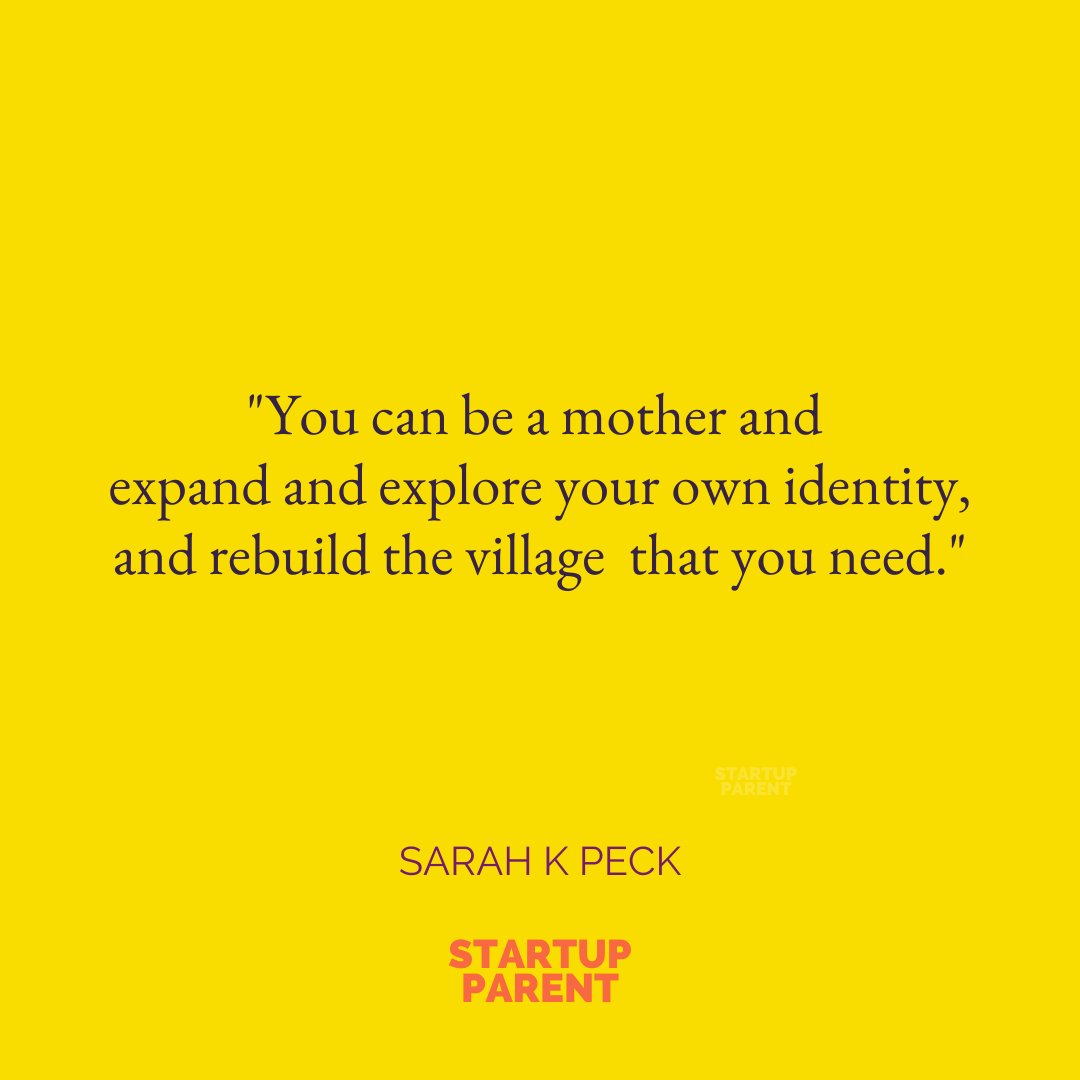
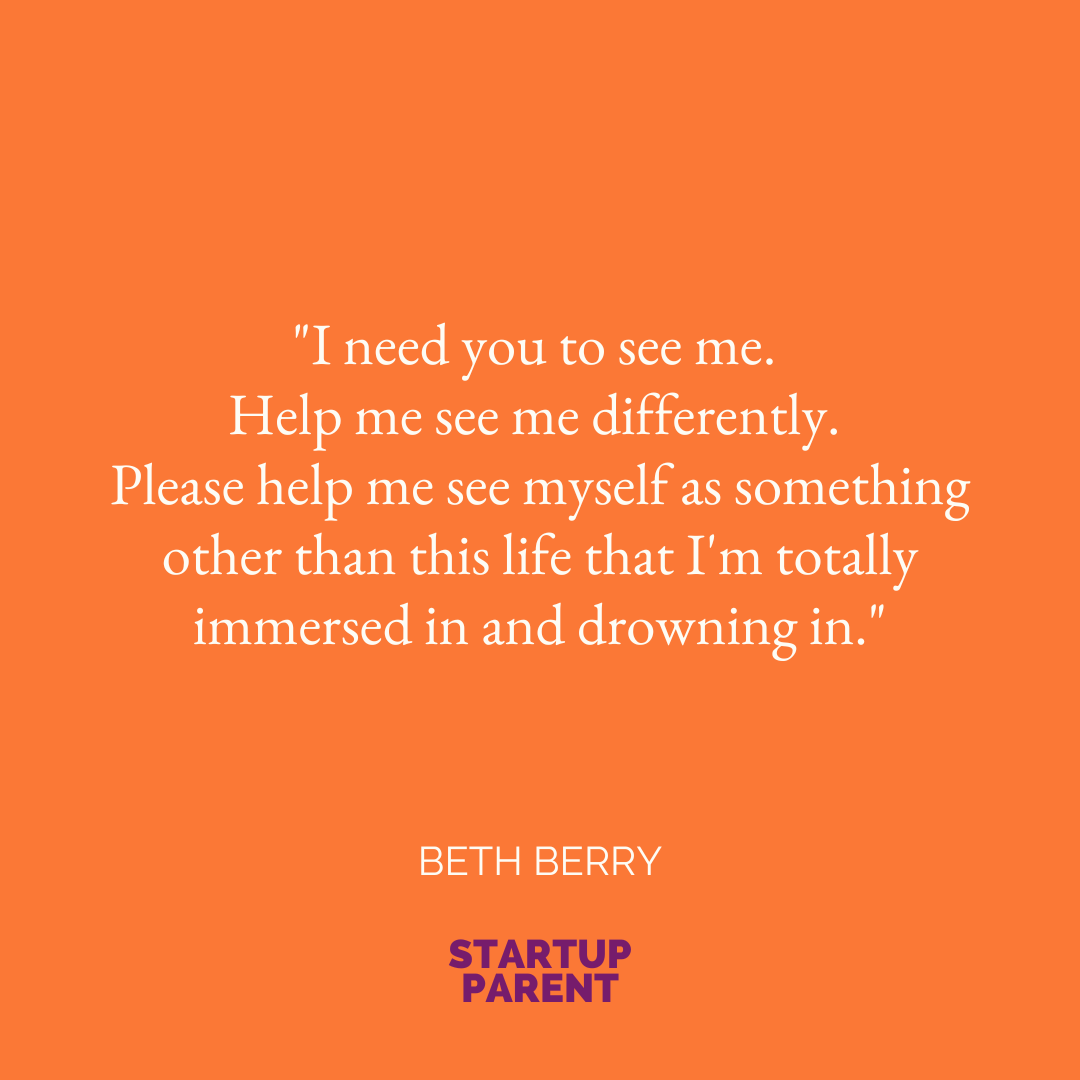
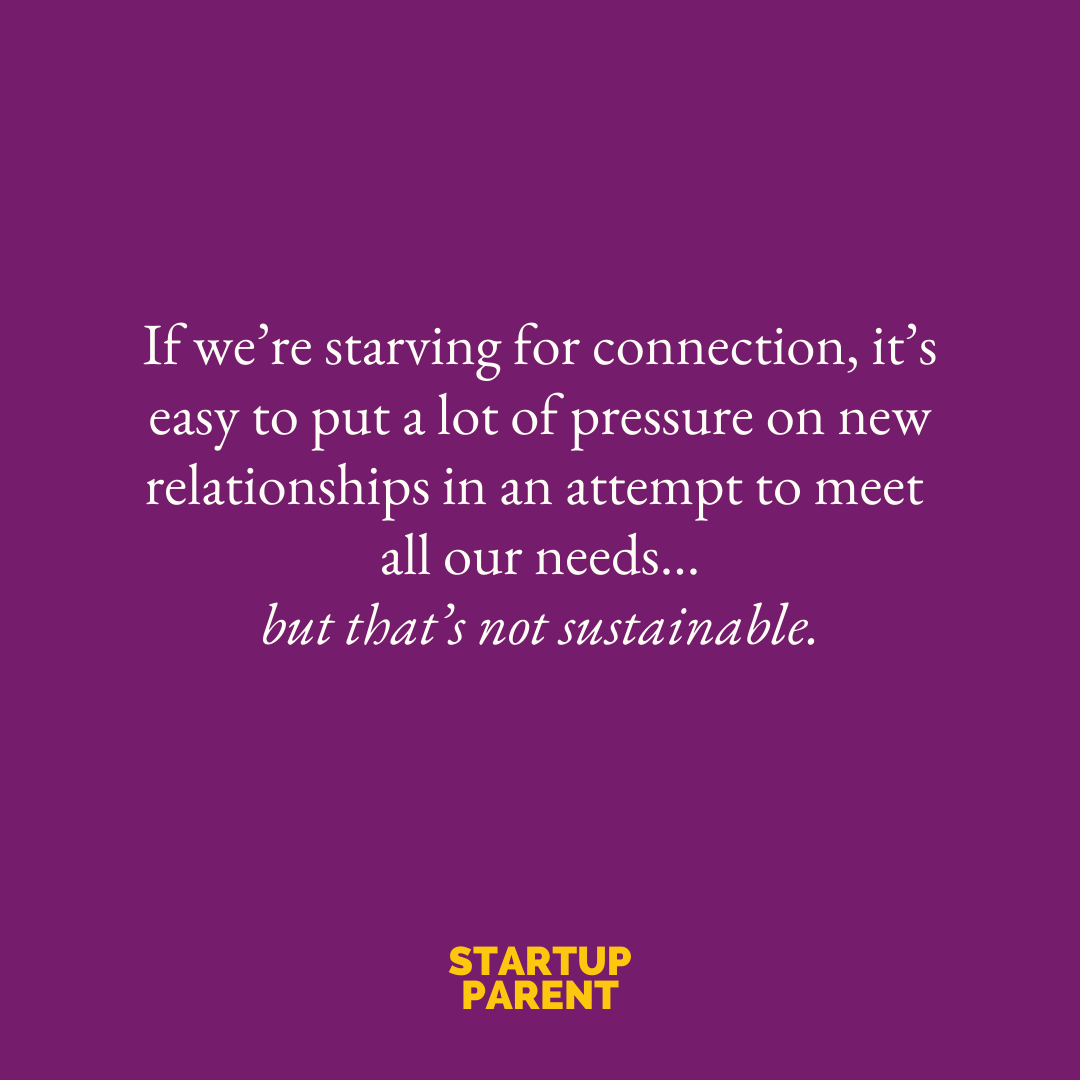
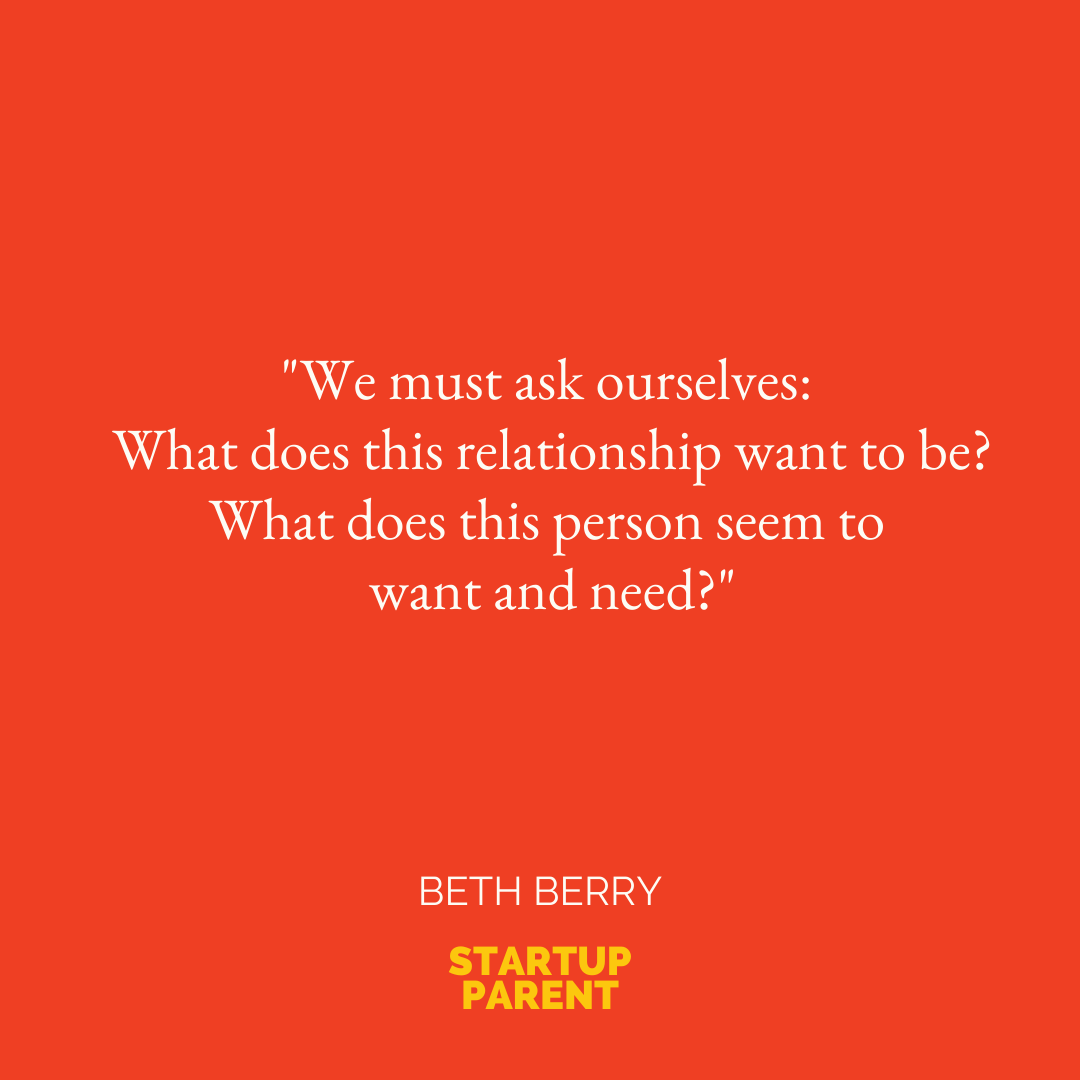
ABOUT THE STARTUP PARENT PODCAST
If you're growing a business, leading a team, or figuring out entrepreneurship and you have kids, this podcast is for you. We go in-depth with founders and entrepreneurial parents about what it really takes to have babies, grow businesses, and get a little bit of sleep. Sign up for the newsletter to get new episodes in your inbox. And leave us a review on iTunes.
Listen to The Startup Parent Podcast on Apple ★ Spotify ★ Google ★ Overcast ★ Stitcher ★ Castbox or wherever you listen to podcasts. Find another podcast player or the RSS feed here.
